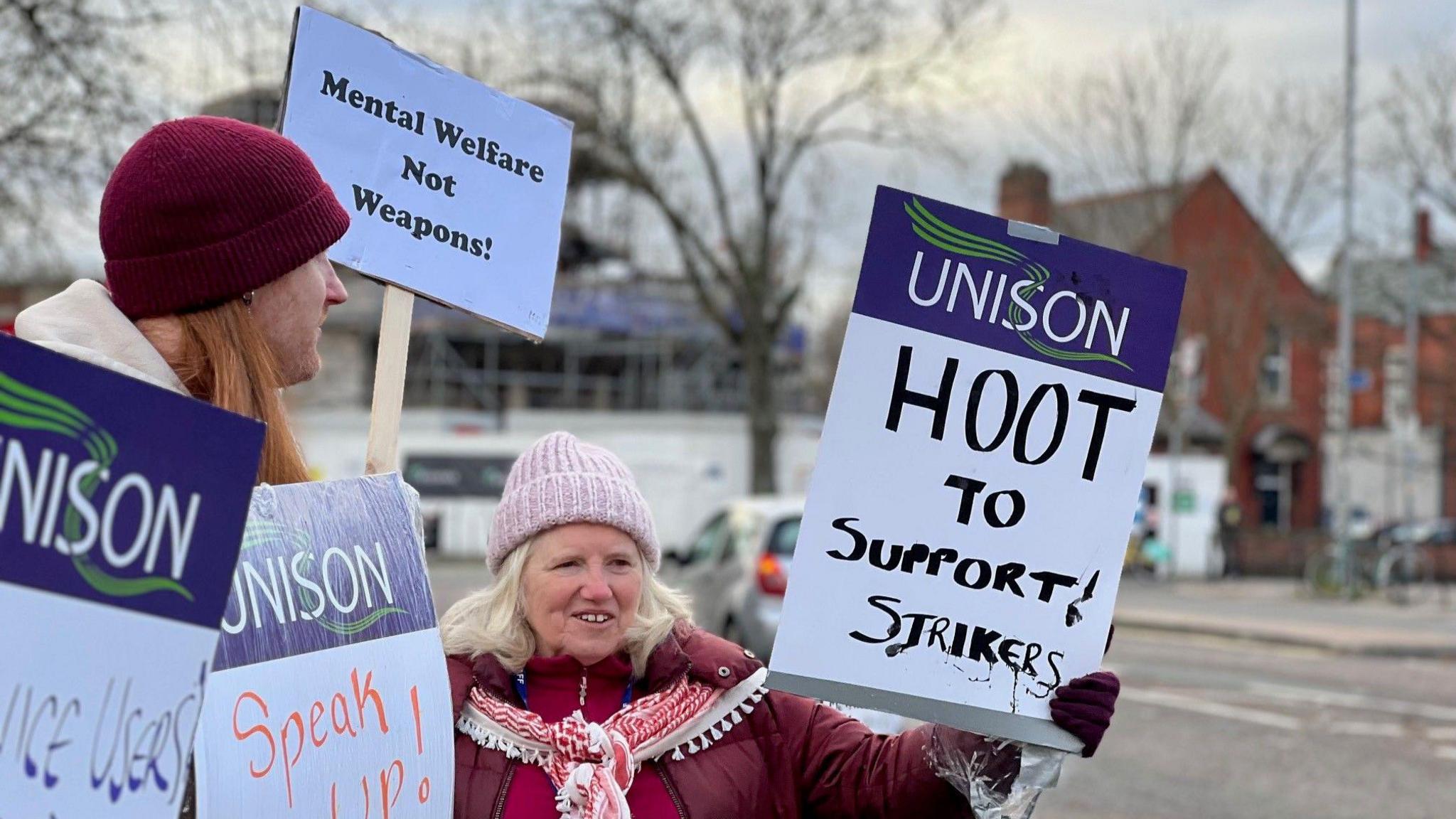A&E like a motorway bottleneck, says consultant
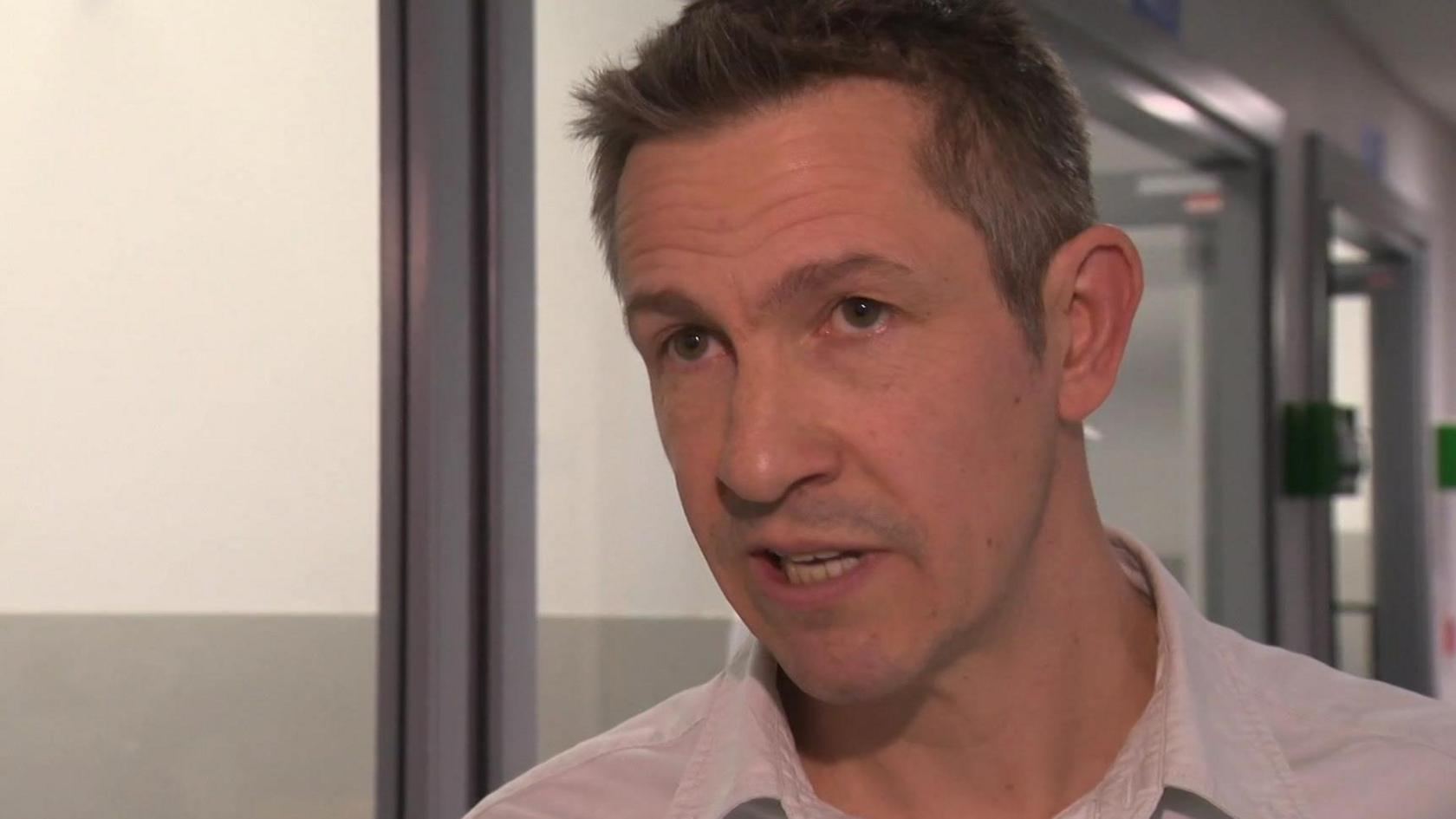
Emergency Department Consultant Dr Tom Bartram
- Published
Health bosses in Cheshire and Merseyside say they are struggling to admit people to hospital quickly because so many patients already in there are unable to leave.
Up to 25% of patients who are medically fit to be cared for at home or in another facility end up staying in hospital longer than they need because of the difficulties of providing community support, they claim.
The area makes up more than a quarter of the national total of hospitals currently getting "urgent support" from NHS England for the issue, which severely impacts A&Es.
BBC North West's Health Correspondent Gill Dummigan went to Macclesfield District General, which is one of the hospitals which is being helped.
It's mid-morning in A&E at Macclesfield District General Hospital and the atmosphere is calm, but concentrated.
"It's really busy. We are well above our capacity at the moment and the demand coming through the door is really high," said Emergency Department (ED) consultant Dr Tom Bartram.
"At the moment I know that we are at about 150% of our bed base in ED. So not everyone's in a clinical space as we would want them to be but we are caring for them none-the-less."
In other words, there are 50% more patients in the emergency department than they have space for, and six patients are having to be looked after in the corridor. Dr Bartram says this is now frequently the case.
"It's really stressful, really emotive. Everyone here wants to do the best that they can. All the staff care profoundly about the patients, and the burden of trying to provide that care for every single patient here is really, really difficult for people, " he says.
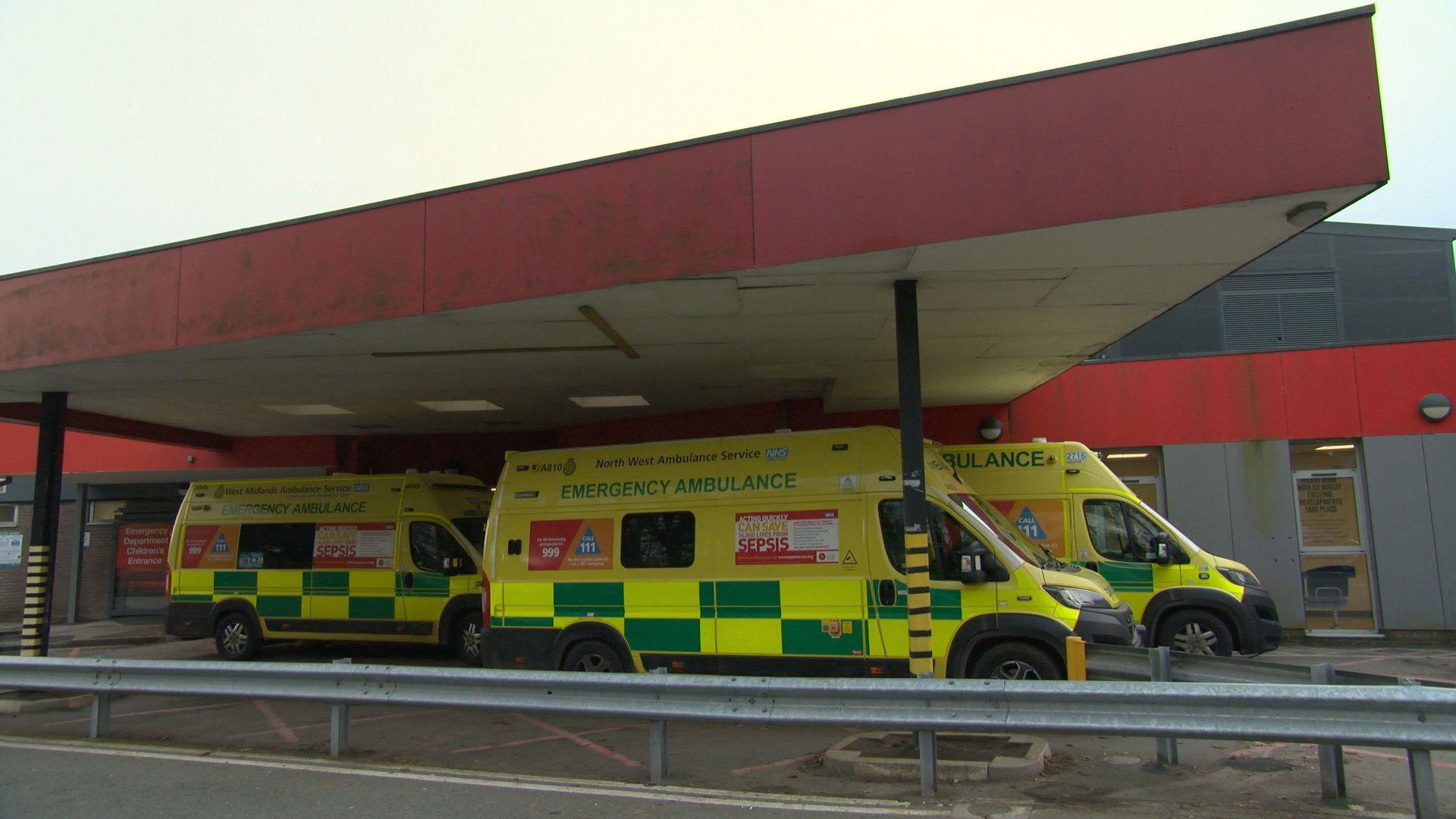
Macclesfield District General is one of the hospitals identified by NHS England as needing urgent A&E support
Corridor care in A&E has become common in many acute hospitals, with some larger sites even setting up entire wards in said corridors.
The problem is that there's nowhere for the patients to go in the main hospital because the wards are so full.
A significant proportion of those ward patients could, in theory, leave if social and community care packages were in place for them – but too often they are not. And so the whole system backs up to the one place which can never say no – A&E.
Dr Bartram compares it to a bottle neck on a motorway.
"If we can't get people out of (A&E) and into hospital beds or back into the community where they need to be then we're that funnel."
It's a particular problem in this part of the world.
Nationally 19 hospitals have been identified by NHS England as needing urgent support this year with A&E flow.
Five – Whiston, the Countess of Chester, Macclesfield District General, Leighton, and Arrowe Park, are in Cheshire and Merseyside. Blackpool Victoria makes six in the North West.
'Working collectively'
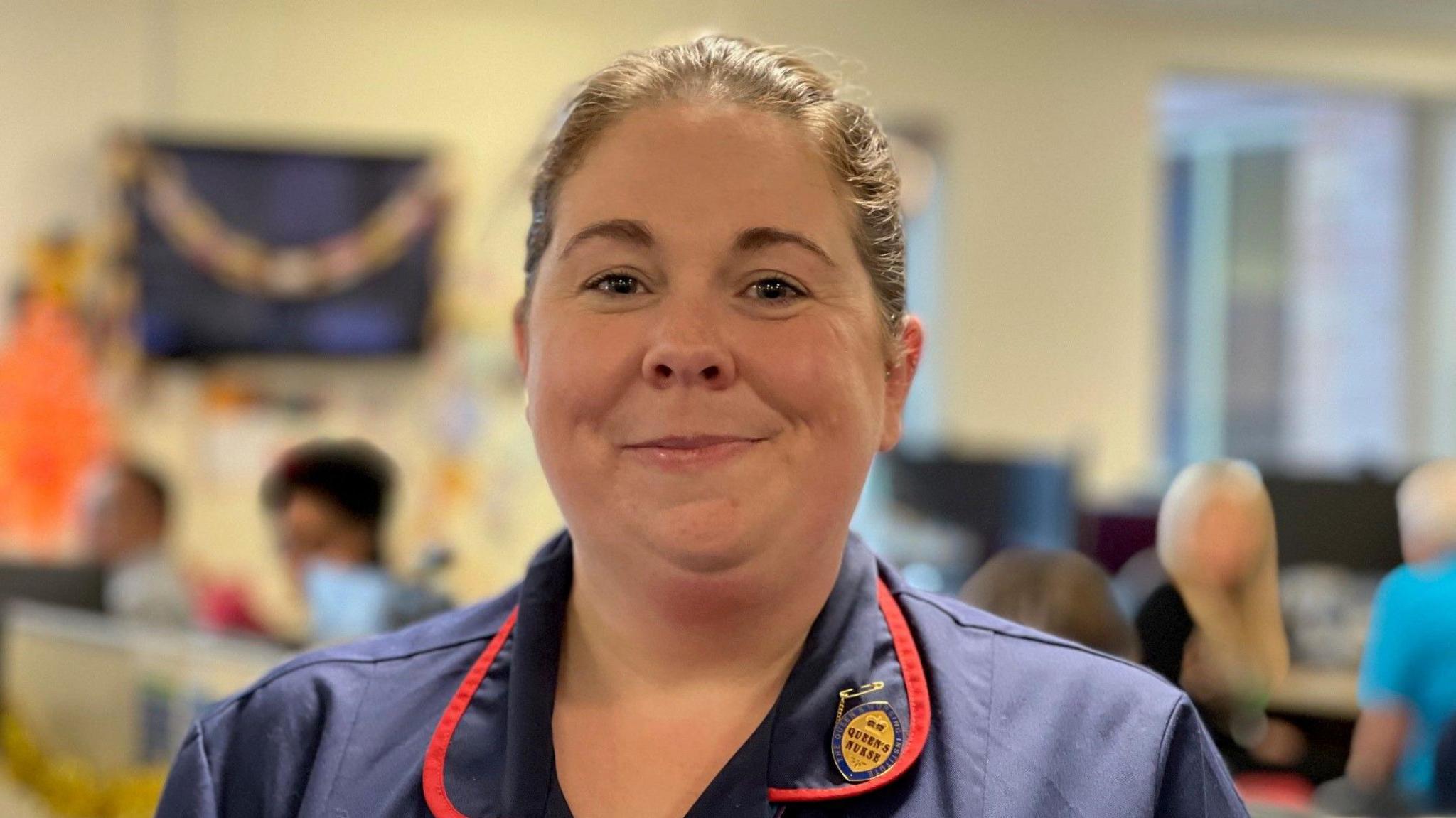
Katie Andrew says being able to draw on different teams' expertise is key
The Medical Director for NHS Cheshire and Merseyside says the biggest issue is getting people safely out of hospital.
"When I look across our entire system, up to a quarter of hospital beds have a patient in them who is well enough to be at home, but we are working really hard to organise that package of care to get them home," said Professor Rowan Pritchard Jones.
The obvious solution is to get everything else working more effectively – particularly community care.
Since September a central team from NHS England has been regularly visiting each hospital to look at how the different parts of the health service work together here. There's also been a small pot of cash to fund initiatives.
Macclesfield already has a well-established system to try to bring everyone together, known as the Transfer of Care Hub.
In a large room on the hospital site there are groups of social workers, district nurses and care co-ordinators gathered around desks, constantly talking on the phone and to each other, making plans for how best to care for patients.
Alison Crossley is a nursing sister there. She goes out on the ward rounds each morning, helping to identify which patients might be ready to leave.
"We'll then do all the assessments, liaise with the families, the carers and the patients themselves to make sure that we can get people out quickly into the right place so that they are safe and all their care needs are met," she says.
Care community coach Katie Andrew says the big advantage is being able to draw on different teams for different aspects of support.
"They can have a chat with the social workers, with our hospital at home team, it might be that they might need the district nurse to just nip in overnight and have a look at the patient if it's a late discharge. So we all work collectively together to make sure we can support the patient in the best way".
Others are concentrating on providing extra support to keep people, particularly the elderly, out of hospital in the first place.
The East Cheshire Trust has piloted a scheme which sends nurses into care homes to teach staff there about the importance of key health indicators like good hydration, and how to quickly head off potential problems before they get worse.
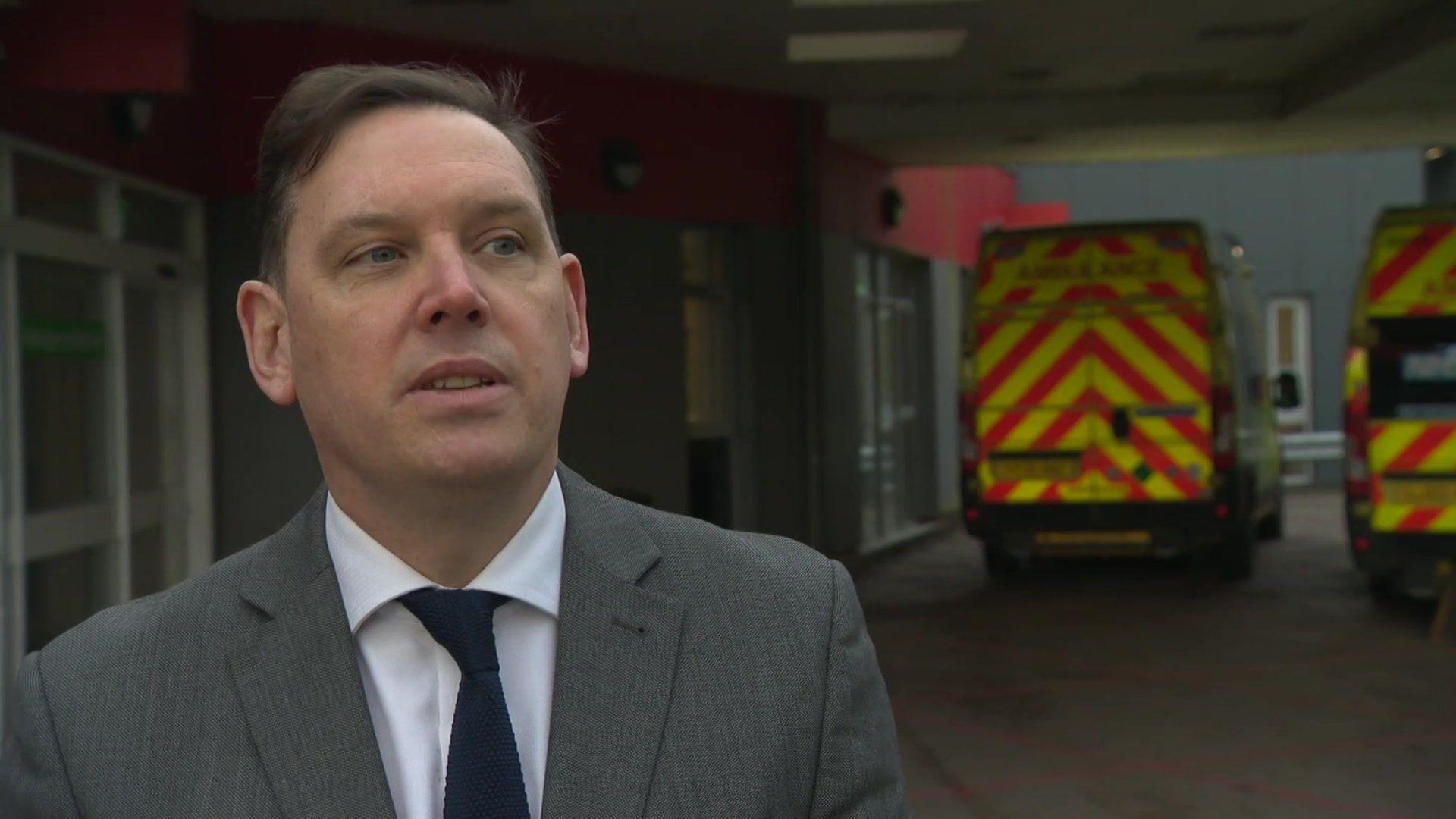
Professor Rowan Pritchard Jones says up to a quarter of hospital beds have a patient in them who is well enough to be at home
They say that scheme alone has seen a 20% fall in admissions to A&E from care homes in the past year.
The most recent NHS figures also show a sharp drop in the number of patients waiting 12 hours or more to be admitted to hospital than the month before – it's 33% down.
But everyone knows that the toughest months are still to come.
"There is no doubt that there is a tough winter that is happening now, and it feels like we've got a storm of issues which are coming together," said Professor Rowan Pritchard Jones.
The chief worry is the "quad-demic" – sharp rises in cases of flu, norovirus and the respiratory condition RSV, plus an expected rise in Covid.
Vaccination figures, he says, are still too low.
"Please get your jab, please make use of the different services out there, whether that's your own GP practice or 111, and come to A&E only if you really need to but (in an emergency) the A&E is open and ready to care."
Listen to the best of BBC Radio Manchester on Sounds and follow BBC Manchester on Facebook, external, X, external, and Instagram, external. You can also send story ideas to northwest.newsonline@bbc.co.uk, external and via Whatsapp to 0808 100 2230.
Related topics
More like this story
- Published17 December 2024
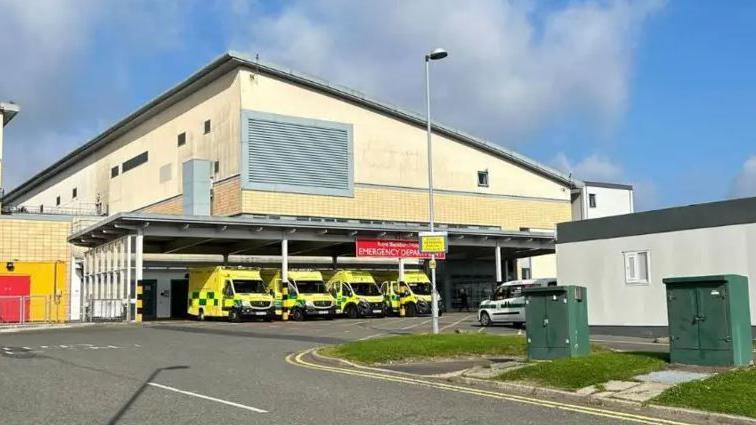
- Published10 December 2024
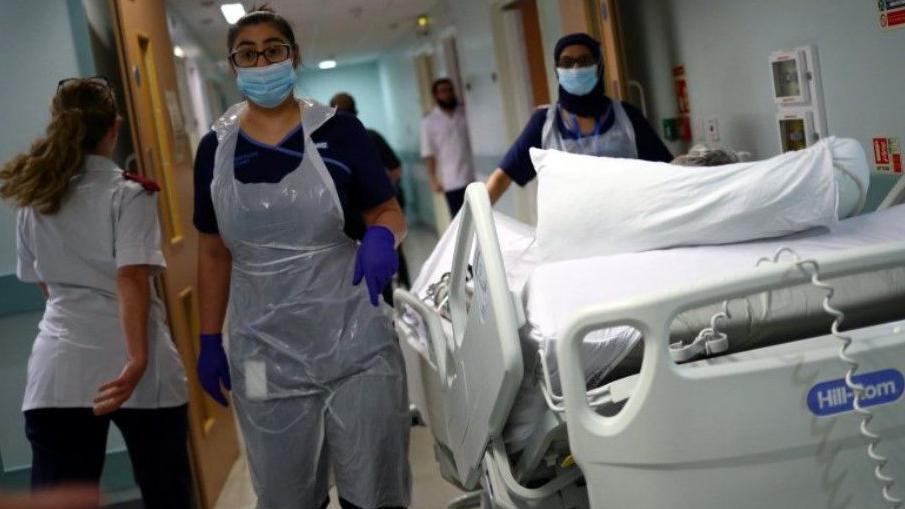
- Published11 December 2024
